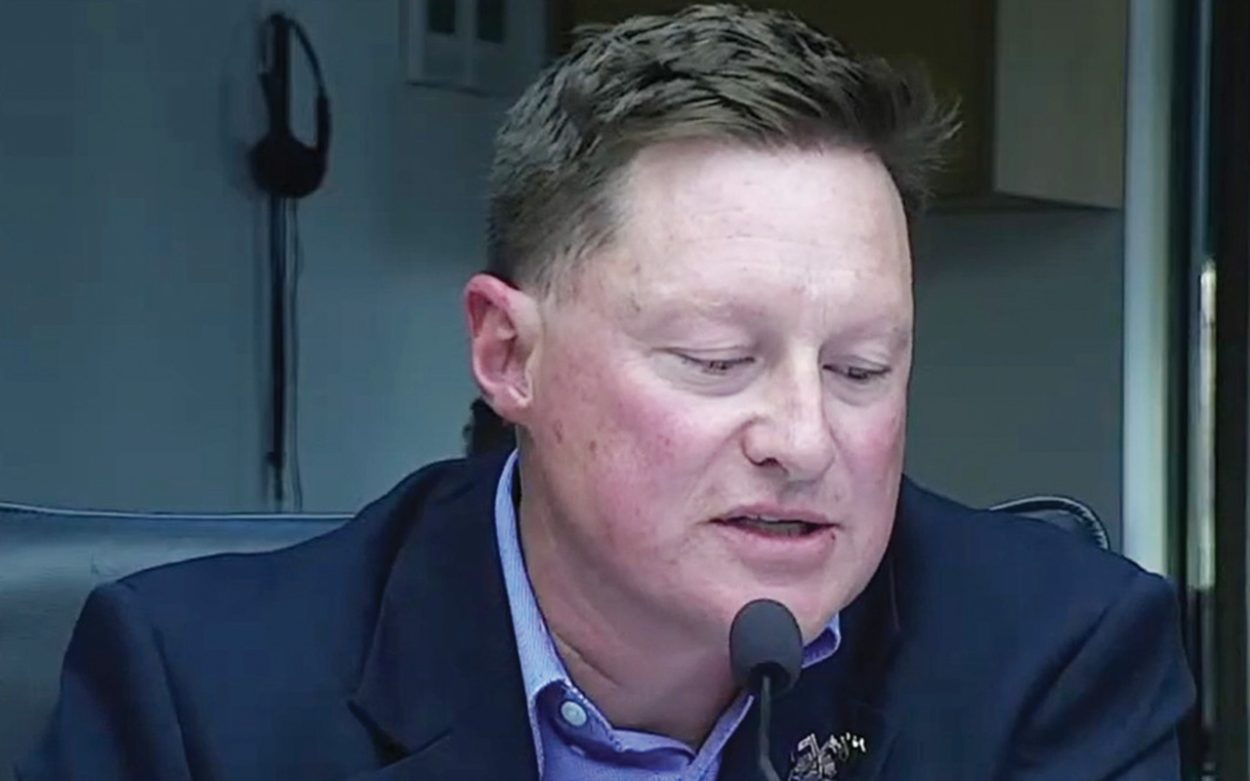MORNINGTON Peninsula Shire deputy mayor Cr Paul Pingiaro has reaffirmed the council will not exceed the state’s three per cent rate cap or future rate caps, after cutting its ten-year projected deficit from $296m to $3m.
The deficit cut was announced in the shire’s Financial Plan 2025-26 to 2035-36, adopted on 30 October, which also forecast a $67.2m cash balance by 2035, up from $3m projected last December.
The dramatic turnaround has prompted questions from residents about how the deficit was achieved, what financial measures were used, whether rate rises would be applied, and if the changes could affect core council services in the long term.
Some also called for greater transparency while others urged more savings should be directed towards repairing the shire’s deteriorating roads.
Under the plan, financial levers would be used to guide council decisions on long-term sustainability and through its annual budget process.
Pingiaro, addressing community concerns, said the plan would not involve rate rises above the rate cap nor cuts to core community services “whatsoever”.
“Rate capping is set by the state each year. We work on the assumption that the rate cap will be between 2.5 per cent and three per cent,” he told The News last week.
He also dismissed comparisons to rate hikes such as what had been seen in some New South Wales councils, calling them “very alarmist” and adding, “it’s definitely not something that would be looked at happening here”.
The shire has adopted the rate cap of three per cent for the 2025-26 financial year, up from 2.75 per cent. The rate cap limits the amount of revenue that councils can raise from general rates and municipal charges.
Councils cannot exceed the rate cap unless it applies to the Essential Services Commission for an exemption to do so.
Council Watch president Dean Hurlston said while the plan looked impressive on paper, residents would be watching to see how it affected services.
“I’d say time will tell, the proof will obviously be in the pudding, but it looks good, it smells good, and less activism burning through ratepayer cash is a good thing,” he said.
“If I can trust the words of the mayor that there’ll be no service level impact around core services, then good on them – it’s a blueprint for more councils.
“Find what you need to do and do that well and jettison everything else.”
When asked about the shire’s pledge not in increase rates for the next decade, Hurlston noted the council hadn’t frozen rates like Bayside City Council had for 2025-26 but said, “at least they’re staying within the cap”.
“Our attitude is always as much as we want rates frozen or reduced, if you can promise people that you’ll stay within the forecast cap, and provided you’re not doing what the councils of New South Wales did by asking for 20 per cent and 40 per cent increases, then that’s fine.”
Pingiaro said the turnaround reflected stronger performance and accountability within the organisation, adding cost efficiencies were made through two service reviews.
“There’s lots of room to make improvements in customer-facing areas, which is what council is all about – it’s not about putting money in the bank, it’s about putting money back into the community,” he said.
“We’re saving $5m out of a budget in year one before other levers are pulled, so you’re already looking at $50 million – it’s just responsible.”
Responding to community calls to fix local roads, Pingiaro said the shire had increased road funding by 72 per cent in the recent budget.
“Roads are one of the key issues for this council. We do have 720 square kilometres of land, which is very different for most metropolitan councils to manage,” he said.
“Whilst road services aren’t perfect, it’s something we’re certainly moving in the best way forward to address. We’ve moved with some other great things; erosion management overlays coming in, we’ll increase focus on drainage, coastal infrastructure, all things that mean something to our community.”
The shire will make cost savings following a major organisational restructure announced this year resulting in up to 48 redundancies, as well as the removal of $160,000 in climate grants, and scrapping a climate emergency declaration after spending $11.7m on climate related initiatives over three years.
Operating expenses were also reviewed in the May budget which will see $5m in employee expense reductions and a further $5m saved in service efficiencies.
Ratepayer of 50 years John Cain, former president of the now-disbanded Mornington Peninsula Ratepayers and Residents Association, said he remained “dubious on council making statements on finance”.
“I hope they’re being honest – they’re not saying how they’re going to get that amount of money,” he said, supporting calls for more detail on how the plan would be achieved.
First published in the Mornington News – 11 November 2025


